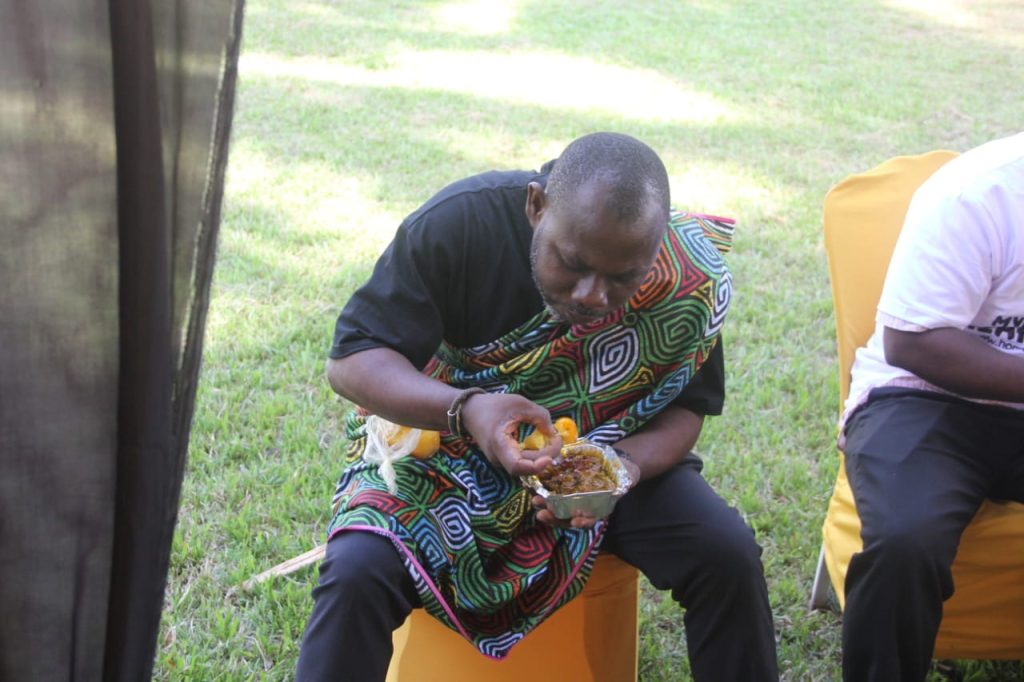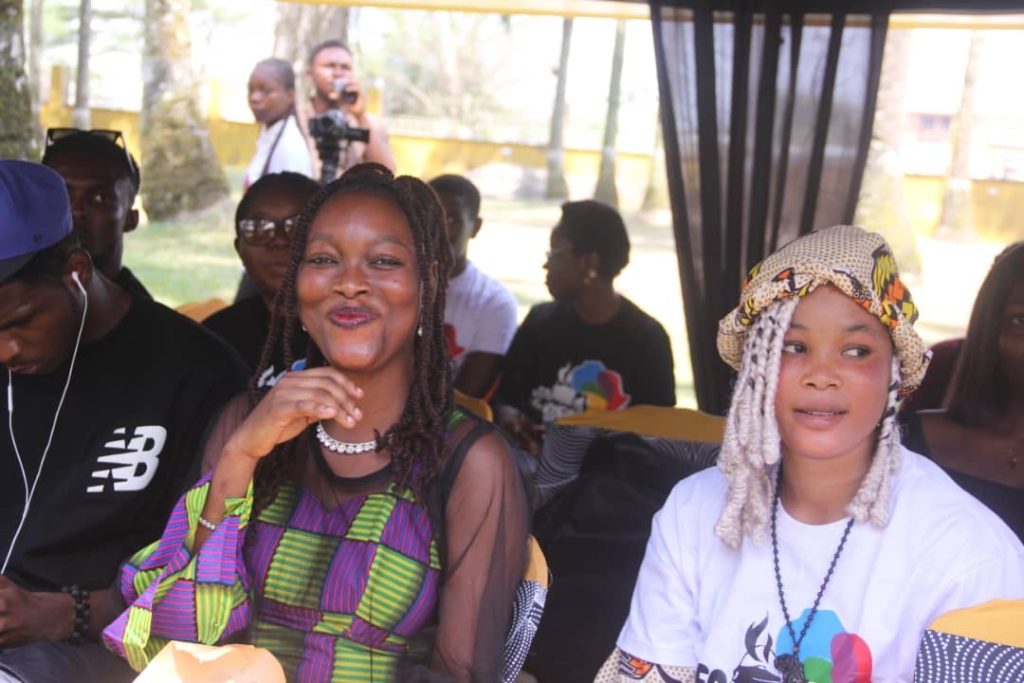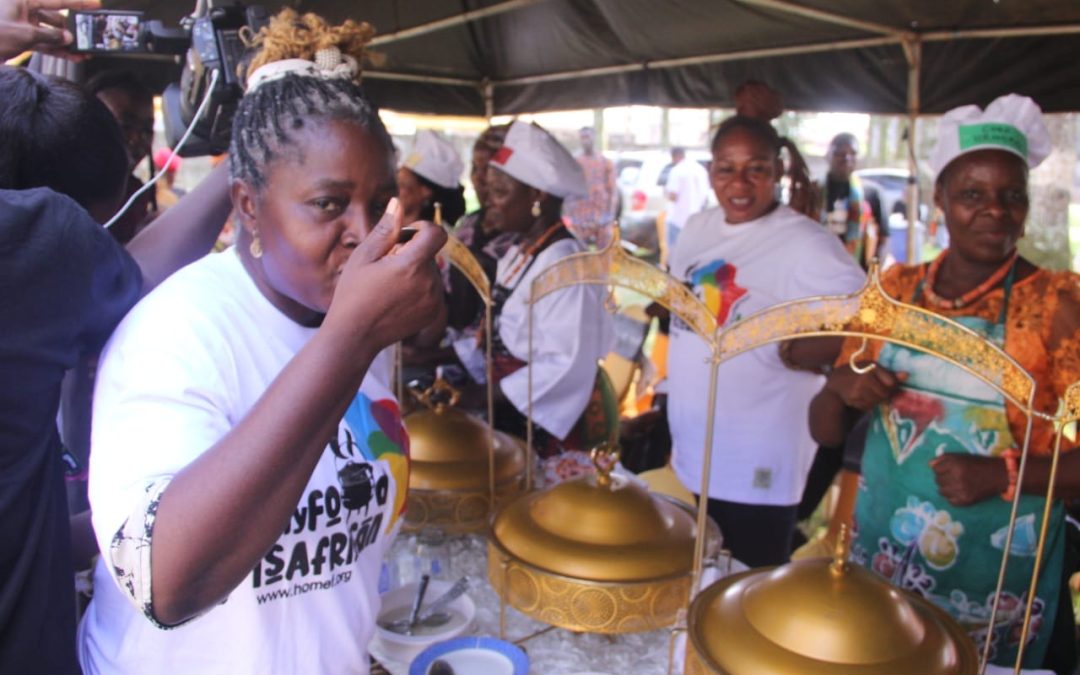Health of Mother Earth Foundation organized the Nigeria food festival to celebrate Nigeria’s food diversity and culture. Participants were drawn from various parts of the country: Kastin, Benue, Enugu, Cross River, Plateau, the FCT, and different parts of Edo State.
The event highlighted the diversity of our food, its medicinal properties, and overall importance. It also noted that food is cultural and identity, as people are often identified by what they eat and their local food. Most of our foods are made with herbs and vegetables that are highly medicinal and support our health.
Research shows that 80% of our food comes from small-holder farmers, making it pertinent to support these farmers to ensure that healthy local food is available for consumption. Our focus should be on promoting and preserving our local food, which is the essence of the food festival—to showcase the beauty of our diversity of foods.
The rights of farmers are central in this discussion. With GMOs, farmers are not encouraged to reuse the seeds due to reduced productivity after the first planting season, purchasing power will be limited, and seed companies will be empowered, which is not sustainable for the farmers and doesn’t support their rights. There are other implications, as 80% are designed to be herbicide tolerant. Studies have also shown that the use of herbicide-tolerant GMOs has led to a significant increase in the usage of herbicides on the farm. These herbicides contain a key ingredient called glyphosate, a carcinogen. There are thousands of cases in the US, for example, where people have come down with different kinds of cancer because of the use of these products. The court in these cities has ordered the company Monsanto, now Bayer, to pay these people thousands of dollars in damages.
GMOs disrupt biodiversity, as these chemicals not only kill the target pests but also destroy beneficial microorganisms in the soil and other important organisms in the ecosystem. These are a few consequences of GMOs, and the Nigerian public is continuously calling on the government to ban them.
“Nigeria can feed itself. We have what it takes”. Farmers say it all the time, and community people confirm it. The land is there, the water is there, and the people are there, too, to do the work. What they need is more support from the government regarding access to the land, access to credit, better infrastructure, and extension services to help our farmers do what they know how to do best.”
“The Nigerian food festival called on the government to ban GMOs in Nigeria because they do not align with our food culture, our identity as a people, or the conservation of biodiversity. The festival calls for support from local food producers, our local seeds, and the preservation of the biodiversity we have in Nigeria.”
“We call on consumers to go back to consuming local foods because these foods support our health as opposed to modern-day often ultra-processed food. Studies have shown that the increased incidence of non-communicable diseases is linked to the kind of food we now eat. It is important that people eat healthy local food, choose diverse food, and not nutritionally empty foods.”
The festival featured chefs and local food vendors cooking various unique Nigerian dishes in competition and on the spot, including Banga soup, Afang soup, Black soup, and several other wonderful soups. We also had other kinds of foods like Ukodo, Ekpankoko, Ewedu, and Gbegiri, and some popular street food prepared on the spot, like bole and fish, abacha, akara, bread, and zobo drink.
In the end, the winner among the chefs was decided by judges (made up of popular food influencers, among others) and awarded. Although all local foods are celebrated, the award was to highlight the importance of the way the food is presented, understanding of the local context around the food and its value, and taste and flavor balance.
The event also featured cultural performances—dance and drama, comedy, poetry, spoken word—and a panel discussion session that highlighted the implications of losing our local food heritage to the entrenchment of GMOs and other such manipulations in our food system.








